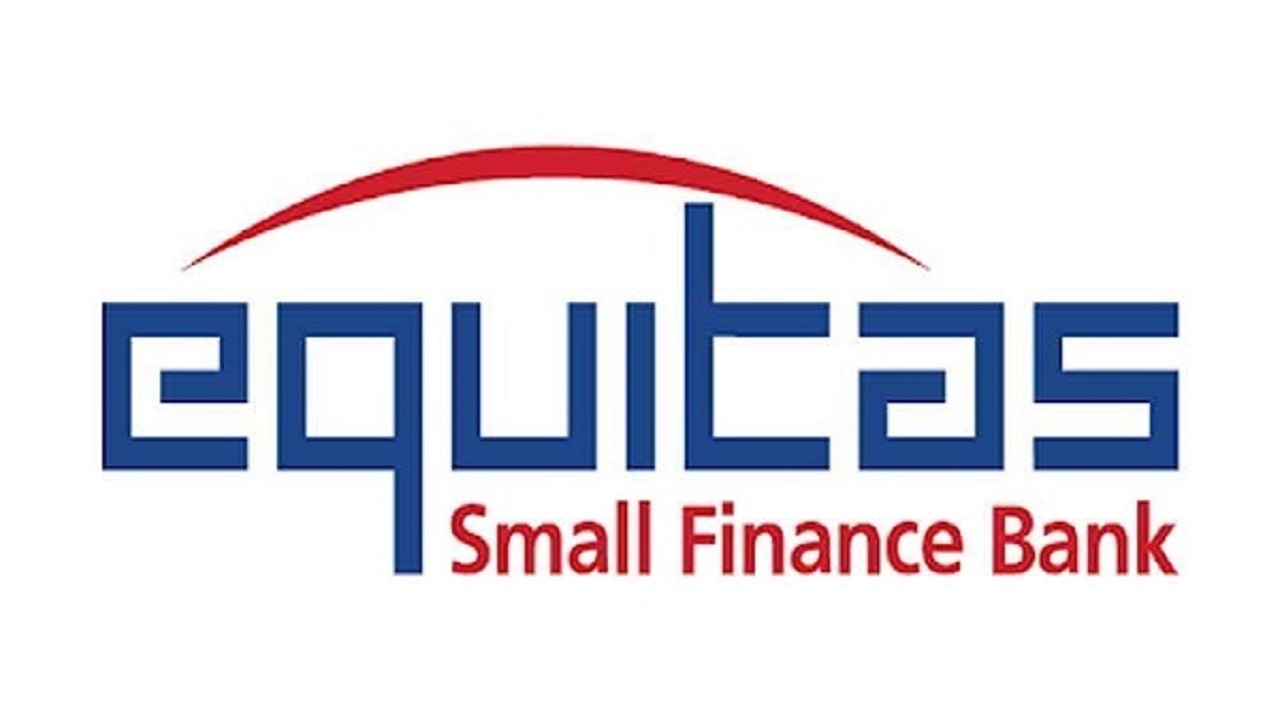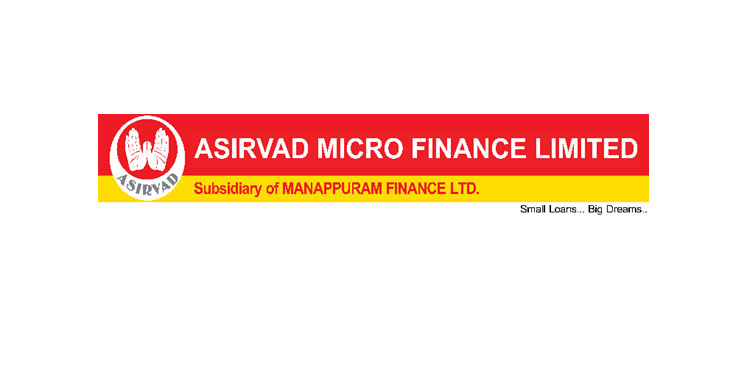Top 10 Most Promising Microfinance Companies in India 2022

Top 10 Most Promising Microfinance Companies in India 2022
In India, the economic growth rate has been continuously increasing over the last few years.
To sustain this growth rate and bridge the gap between the rich and poor sections of society, several microfinance companies have been established in India. A microfinance company is an organisation that provides financial services to low-income clients, who typically do not have access to mainstream banking products and services.
Microfinance is a relatively new concept in India; it was first introduced to India in 1978 when the country’s first microcredit institution was established. The objective behind setting up microfinance institutions (MFIs) was to provide people with small loans for short-term financing needs. The definition of “small loans” differs in every country. In India, any loans of less than Rs.1 lakh are classified as microloans.
Microfinance is a financial service that provides affordable loans to people who need them. It is designed for people with low income in developing countries, especially rural areas and urban slums where poverty and unemployment are high. These institutions are often set up by NGOs, microcredit groups, foundations or cooperatives. They can be licensed as banks, credit unions or savings and loan associations depending on the laws of the country they operate in.
Some of these organisations are non-governmental and non-profit, while others are for-profit commercial entities that offer special social benefits. Microfinance companies can offer these services because they have special arrangements with banks and other financial institutions that allow them to receive credit at much lower rates than their clients pay.
Microfinance companies can also play an important role in helping the poor achieve self-sufficiency by providing them with access to affordable credit services, as well as education and support. It plays a crucial role in alleviating poverty, especially among women and the poor, all over the world by allowing them to start or expand their small businesses.
In India, microfinance is considered to be a vital tool for poverty alleviation. The main idea behind microcredit is that lending small sums of money at affordable interest rates can help individuals in the lower-income bracket gain self-employment. The concept has been very successful and many organisations have started lending money to the poor so they could become financially independent.
These are the Top 10 Most Promising Microfinance Companies in India.

1. Equitas Small Finance Bank
Equitas Small Finance Bank, originally known as Equitas Micro Finance Ltd. is a wholly-owned subsidiary of Equitas Holdings Ltd., with its headquarters in Chennai, Tamil Nadu. The company was established to provide microcredit to individuals who are unable to obtain financing through mainstream banks or financial organisations.
The company’s goal is to make finance available to such consumers at a fair cost and to produce decent returns on investment to attract mainstream capital continually. Equitas Small Finance Bank Limited was incorporated in India in 2016 to provide financial services to the underprivileged sections of society.
Equitas is one of the leading Small Finance Institutions in India having a network of more than 400 branches spread across 22 states and 2 union territories. Having pioneered the concept of small finance in the country, Equitas is India’s largest organized microcredit institution by branch network and customer base.
It is the fifth bank in India and the first Small Finance Bank to be granted a banking licence by RBI. The Bank intends to become one of the largest providers of financial services to small and medium businesses, MSMEs and rural customers in India, with a focus on those populations that are currently underserved.

2. Fusion Micro Finance Limited
The company was founded in 2010 to provide affordable credit to the micro and small sector. It has emerged as one of the leading microfinance institutions in India by lending over INR 1.3 billion across several states in India and continues to grow rapidly.
Fusion Micro Finance Limited is a company that lends to micro-businesses and entrepreneurs, who could not otherwise access loans due to lack of collateral. The company provides a range of financial services including short-term working capital loans, loans against property, gold loans, and various insurance products.
The company is a pioneer in the field of microcredit. It has completed its ten-year journey of empowering women from all walks of life to become financially independent. The company has been awarded “Sangam” for the year 2014 by the Federation of Indian Chambers of Commerce and Industry (FICCI) in New Delhi.
In continuation to its new initiative, the company is planning to launch its housing finance scheme named “Shubh-Karya” under which they will provide loans to individuals and institutions to purchase or construct a dwelling unit.

3. ESAF Small Finance Bank
Established in March 2017, it is an Indian small finance bank providing banking services and small loans to the underbanked (formerly ESAF Microfinance and Investments Pvt. Ltd.). ESAF Microfinance began operating as an NGO in 1992 under the name Evangelical Social Action Forum.
Based in Thrissur, Kerala, ESAF Bank was previously a non-banking finance company and microfinance institution (NBFC-MFI).
Since its inception, it has been engaged in providing non-credit financial services to the underprivileged sections of society by offering them financial products and services such as Cash Credit and Mobile Phone Loans, Medical Insurance, Crop Insurance, Education Loans, Business Loan, Agriculture Equipment Loan etc.
ATMs, Debit Cards, Safe Deposit Lockers, Internet Banking, Mobile Banking, and other modern banking services are available from the bank. ESAF Small Finance Bank’s special features include door-to-door delivery, free video calling in branches, and the Hrudaya Deposit Scheme.

4. Annapurna Finance Private Limited
Annapurna Finance Private Limited is a micro-finance institution founded in 2009 in Odisha, India. It has a loan portfolio of INR 70 crore (USD 12 million) and serves approximately 50,000 customers across the states of India.
Annapurna Microfinance is committed to ensuring that the poor are empowered to take charge of their lives. The company offers a range of financial products and services to the economically underprivileged population that includes loans, deposits and insurance.
Established as a non-banking financial institution (NBFI) with an initial investment of INR100 million, AMPL has expanded its branch network over the years to reach more than 45 branches across the country. Annapurna Finance is a private limited company that provides microcredit to poor people, establishing sustainable livelihoods.
It aims to empower women and alleviate poverty by enabling them to earn more and lead self-reliant lives. The company provides collateral-free loans to women in remote villages who have no access to retail banking services or have been turned down by banks and moneylenders due to a lack of collateral.

5. BSS Microfinance Limited.
BSS Microfinance Limited is a microfinance organization that currently works as a ‘Commercial Correspondent’ for Kotak Mahindra Bank Limited. It began its operations in 1999 as a Trust.
The company took over the Trust’s microfinance services in April 2008, and it has since been extending microloans to women from economically disadvantaged parts of society. These loans aim to assist poor women in taking out income-generating enterprises, thereby improving their social situations.
BSS Microfinance is currently available in four states: Maharashtra, Karnataka, Tamil Nadu, and Madhya Pradesh. The company’s purpose is to alleviate poverty by providing microfinance services to women, which are then passed on to their families.
The organisation also intends to facilitate higher profits, a higher quality of life, and better financial management. BSS Microfinance primarily lends only to women through the Group Lending Program.
6. Cashpor Micro Credit
Cashpor Financial & Technical Services (CFTS) owns Cashpor Micro Credit. It is a poverty-focused microfinance institution established in Varanasi that identifies women living in rural eastern Uttar Pradesh, Bihar, and Chhattisgarh and provides them with microcredit services to help them generate money.
Cashpor Micro Credit is not required to register with the Reserve Bank of India and employs a dual lending approach of direct loan and banking correspondence lending. Cashpor works as a sourcing agent for banks under the bank correspondence method; loans are originating directly in the records of the banks.
Cashpor offers first-loss default insurance on the portfolios it sources, in exchange for a sourcing premium (the gap between the interest paid by the borrower and the interest paid to the bank).
As of December 31, 2013, the business was functioning through a network of 341 outlets spread throughout 31 districts. Cashpor, founded by Professor David Gibbons, provides microcredit in Uttar Pradesh, Bihar, and Chhattisgarh utilising the Grameen Bank lending model.

7. Asirwad Micro Finance Limited
Asirvad is a Chennai, Tamil Nadu-based Non-Banking Financial Corporation (NBFC – MFI) established in 2007. The company was founded to provide financial support to the underprivileged sections of society, assisting them in achieving financial independence. The primary goal of founding Asirvad was to empower individuals from such segments of society, resulting in economic inclusion and thereby aiding the country’s development.
To alleviate poverty in the country, the microfinance organisation has been issuing loans to low-income individuals who do not have access to bank loans in any manner. Through its network of outlets in 22 Indian states, it provides microfinance loans to women from low-income households.
Asirvad Microfinance provides microloans to qualified borrowers according to the RBI’s guidelines. Borrowers can utilise these microloans to supplement their income by using them for business, trade, or service. Depending on the needs of individual consumers, the organisation offers loans anywhere from Rs 10,000 to Rs 25,000.
Asirvad, incorporated under the Companies Act of 1956, is now worth more than Rs 100 crore. Manappuram Finance Limited, which now has an 85 per cent ownership in Asirvad, recently acquired the company.

8. Bandhan Financial Services Private Limited
Bandhan Bank is an Indian commercial bank that focuses on underbanked and underpenetrated sectors. Bandhan Bank is India’s first example of a microfinance institution transitioning into a universal bank. Bandhan Konnagar was founded in 2001 as a non-governmental organisation (‘NGO’) that provides microfinance services to financially and culturally disadvantaged women in rural West Bengal.
Bandhan Financial Services Limited (BFSL) began its microfinance business in 2006, and in 2009, the NGO transferred its microfinance operation to BFSL, taking over the whole microfinance company. In addition to loan and deposit products, the bank provides a variety of other banking services and products to generate non-interest income and meet the needs of its customers.
The bank currently provides a wide range of asset and liability offerings for both micro banking and conventional banking. Its asset products include retail loans, which include a sizable portfolio of microloans, as well as micro, small and medium enterprise (‘SME’) and small enterprise loans.
As of March 31, 2021, the bank’s overall banking outlets were 5310. The network includes 1147 branches and 4163 banking centres, with a total of 487 ATMs located around the country. Bandhan Bank has a large presence in India’s underserved East and North East.

9. Fincare Small Finance Bank Limited
Fincare Micro Finance Institution became a small finance bank in July 2017. Fincare Small Finance Bank was formed by the merger of two microfinance organisations (Future Financial Services Private Limited and Disha Microfinance & NBSP Private Limited), which received their final licence from the RBI and began operations in May 2017.
The bank began operations to enable financial inclusion for unbanked and underbanked consumers through the active engagement of the more privileged segments.
The bank’s registered office is in Ahmedabad, Gujarat, and its corporate headquarters are in Bengaluru, Karnataka.
With a ‘Rurban’ focus, Fincare Small Finance Bank is a new breed of retail bank built on trust, technology, and integrity. The Bank was placed in the Second Schedule of the Reserve Bank of India Act, 1934 in the first quarter of 2020, and as a result, the Bank has become a Scheduled Commercial Bank, a designation that represents excellent governance.

10. Arohan Financial Services Limited
Arohan, a company based in Kolkata, began its microfinance operation in 2006. It was eventually bought in September 2012 by IntelleCash Microfinance Network Company Pvt Ltd, which now owns 56% of Arohan. IntelleCash is a subsidiary of Intellectual Capital Advising Services Pvt Ltd, an investment banking and advisory organisation. IntelleCash’s microfinance portfolio was integrated with Arohan following the acquisition.
Arohan provides a wide range of items to financially disadvantaged customers. Credit and insurance products are the two types of financial products. Credit products include income-generating loans and other loan products for various household purposes, while insurance products include healthcare and life insurance covers issued and underwritten by certain Indian insurance companies with whom Arohan has tie-ups. Microfinance institutions can also get term loans from the company.
Arohan Financial Services Limited, a subsidiary of The Aavishkaar Group, is the largest NBFC MFI in eastern India. As of September 30, 2020, the company operated in 17 states and served 2.21 million end clients. According to the Great Place to Work Institute, Arohan is Great Place to Work-Certified, one of the Top 100 Best Workplaces in India 2020, one of the Top 25 in the BFSI field, and one of the Best Workplaces in Microfinance India 2020.
Conclusion
The world has been increasingly becoming globalized, and today there is a good amount of trade taking place across the planet. Many companies have benefited immensely from this particularly in developing economies. Microfinance companies play a vital role in the development of rural areas, especially in developing countries where most people face some kind of financial constraint.
A microfinance company is a financial institution that provides loans to small enterprises and individuals who might not be eligible for traditional bank loans. It is a financial service that helps people who don’t have enough money to start or maintain their businesses.
Although microcredit institutions have been lucrative in India, rules and populist politics have been unfavourable to them. Because of their tiny size, these institutions are impacted by minor negative developments, resulting in unstable finances. These institutions are heavily reliant on the funding market. This means that even minor business occurrences could make it difficult for MFIs to obtain finance.

Furthermore, banks now have a foothold in the microlending industry and are collaborating with MFIs through strategic stakes. MFIs are also finding it difficult to grow on their own without the help of anchor investors. Several microfinance institutions have become small finance banks. This indicates that they will be able to lend at greater interest rates and they will have access to low-cost deposits.
According to MFIN data, banks are currently among the largest providers of microfinance. MFI-turned-banks continue to be the primary suppliers of microfinance. Because financial inclusion is increasing, MFIs have many more years of opportunity ahead of them. The ongoing support of investors is critical to their sustainability.
Lastly, microfinance companies are providing services to millions of people and have enabled them to get loans at an affordable interest rate. However, there is still a long way to go before these services can be offered by banks.
Edited and published by Ashlyn Joy






